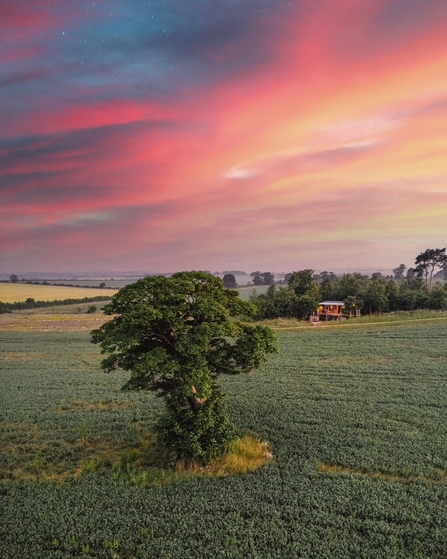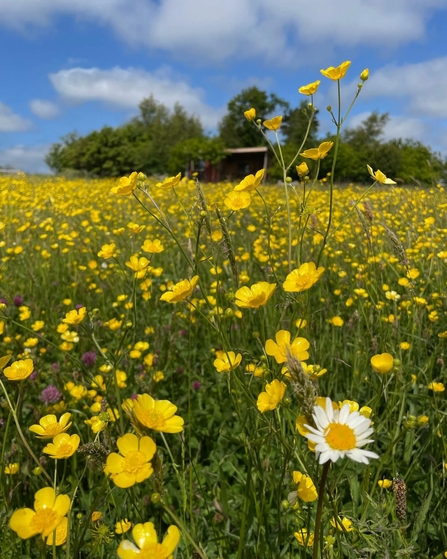
© Earsdon Hill Farm
Today, that same land is alive with the sound of birdsong, the flutter of butterflies, and the rustle of wildflowers in the breeze. By converting to organic farming, we’ve restored soil health and reduced chemical inputs, creating a foundation for nature to flourish. We have noticed that our soils have recovered their fertility and flooding of the fields has reduced.
We’ve brought back 12 miles of hedgerows creating vital wildlife corridors across the farm, planted 3 hectares of native woodland through the English Woodland Creation Scheme, and achieved Woodland Carbon Code status – securing long-term carbon storage to help tackle climate change and provide a useful income stream for the future business.


